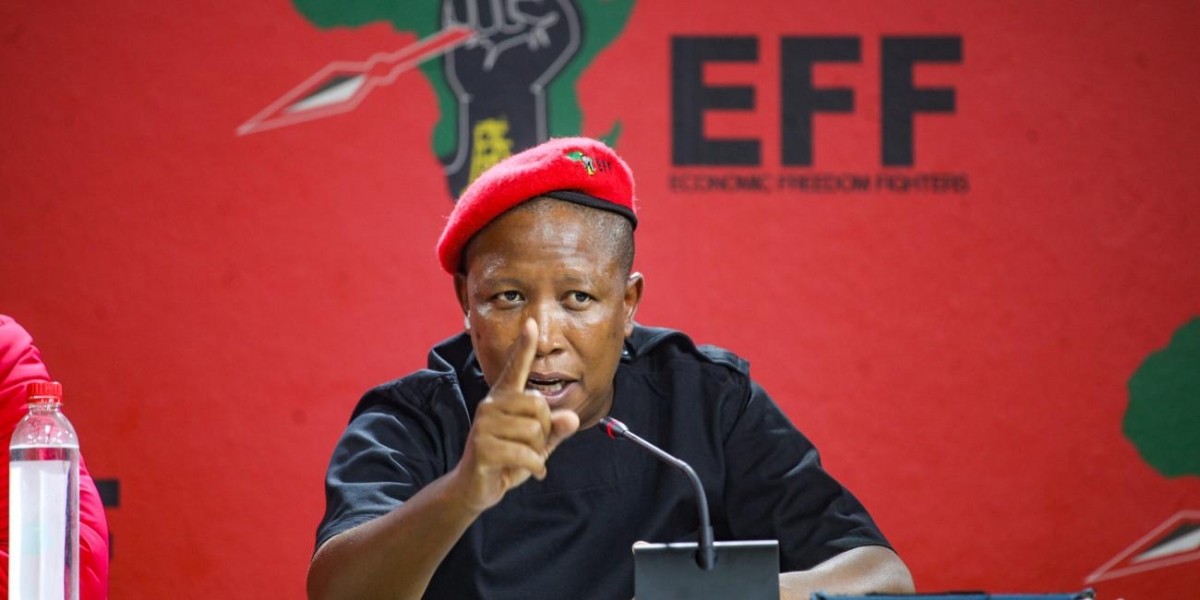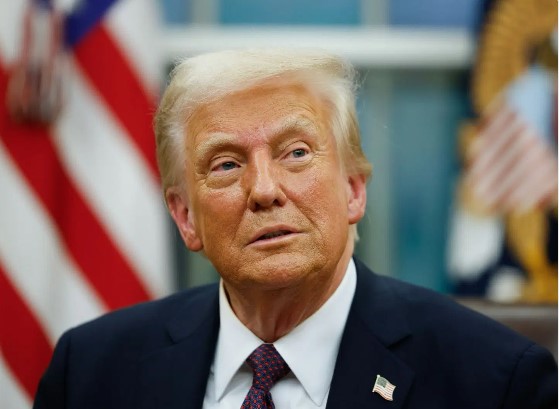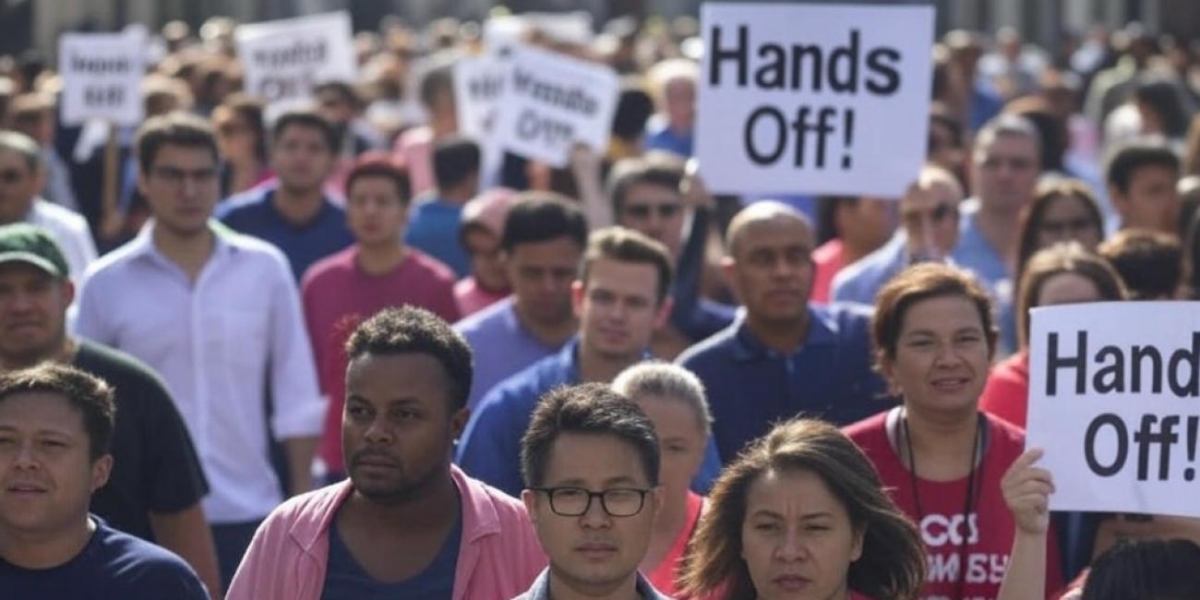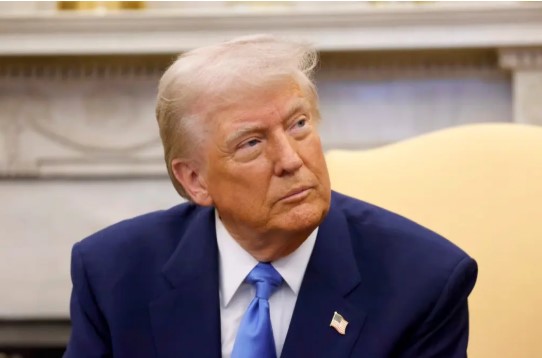Explosive Fallout: Trump's Iran Threat Triggers Global Concerns
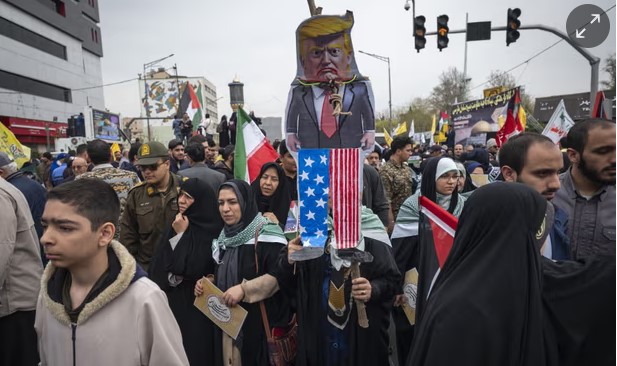
Trump’s bombing threat over Iran nuclear programme prompts backlash
Donald Trump threatened to strike Iran if it did not comply with US demands to limit its nuclear program, to which Iran has responded indignantly.
On Sunday, the US president warned that bombing would occur if Iran "[doesn't] make a deal." The bombing will be unlike anything they have ever seen.
Trump wrote a confidential letter to Iran asking to hold discussions on its nuclear program, which prompted his most recent warning, which was more harsh and specific than any previous one. Officials revealed that Iran replied to the United States that it was open to indirect discussions.
Regarding Trump's threat, Iranian Foreign Ministry Spokesman Esmail Baghaei stated: "It is obviously incompatible with the fundamentals of international peace and security when a nation's leader explicitly threatens to bomb Iran.
On Sunday, the US president warned that bombing would occur if Iran "[doesn't] make a deal." The bombing will be unlike anything they have ever seen.
Trump wrote a confidential letter to Iran asking to hold discussions on its nuclear program, which prompted his most recent warning, which was more harsh and specific than any previous one. Officials revealed that Iran replied to the United States that it was open to indirect discussions.
Regarding Trump's threat, Iranian Foreign Ministry Spokesman Esmail Baghaei stated: "It is obviously incompatible with the fundamentals of international peace and security when a nation's leader explicitly threatens to bomb Iran.
Did you know? You can comment on this post! Just scroll down
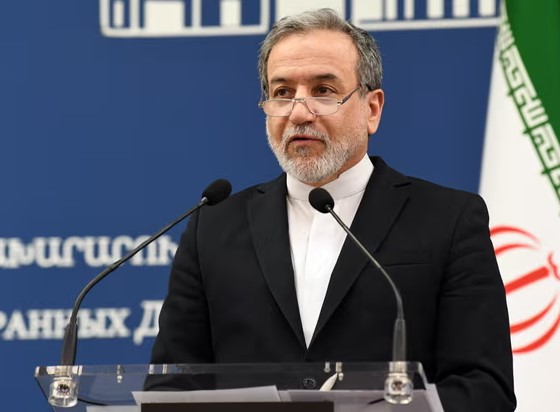
Such a threat is a flagrant breach of both the International Atomic Energy Agency's safeguards framework and the United Nations charter. America has a choice: violence breeds violence or peace breeds peace.
Iran is "not overly concerned" by Trump's remarks, according to Ayatollah Ali Khamenei, the supreme leader and skeptic of discussions with the United States. We don't think such damage would originate from the outside. But if a malevolent act does happen, it will undoubtedly be dealt with with firmness and decisiveness," he stated.
“The Americans have at least 10 bases with 50,000 troops in the region, meaning they are sitting in a glass house.” “Someone in glass houses does not throw stones at anyone,” stated Brig Gen Amir Ali Hajizadeh, the commander of the Revolutionary Guard’s aerospace unit.
However, Abbas Araghchi, the Iranian foreign minister, made it apparent that he had the power to maintain the possibility of negotiations by claiming that Iran had already responded to the Trump letter via middlemen in Oman and that he was aware that the Iranian letter had now made it to the United States. Araghchi stated that as long as the US persisted in intimidating and threatening Iran, direct negotiations were not feasible.
However, Abbas Araghchi, the Iranian foreign minister, made it apparent that he had the power to maintain the possibility of negotiations by claiming that Iran had already responded to the Trump letter via middlemen in Oman and that he was aware that the Iranian letter had now made it to the United States. Araghchi stated that as long as the US persisted in intimidating and threatening Iran, direct negotiations were not feasible.
“The Americans have at least 10 bases with 50,000 troops in the region, meaning they are sitting in a glass house.” “Someone in glass houses does not throw stones at anyone,” stated Brig Gen Amir Ali Hajizadeh, the commander of the Revolutionary Guard’s aerospace unit.
However, Abbas Araghchi, the Iranian foreign minister, made it apparent that he had the power to maintain the possibility of negotiations by claiming that Iran had already responded to the Trump letter via middlemen in Oman and that he was aware that the Iranian letter had now made it to the United States. Araghchi stated that as long as the US persisted in intimidating and threatening Iran, direct negotiations were not feasible.
However, Abbas Araghchi, the Iranian foreign minister, made it apparent that he had the power to maintain the possibility of negotiations by claiming that Iran had already responded to the Trump letter via middlemen in Oman and that he was aware that the Iranian letter had now made it to the United States. Araghchi stated that as long as the US persisted in intimidating and threatening Iran, direct negotiations were not feasible.
Iran may not want the UAE, which has normalized relations with Israel, to serve as a middleman, as evidenced by the fact that it delivered its response through Oman, its long-standing preferred mediator, rather than the UAE. All parties agreed that the indirect form of the talks ate up time, which Trump is hesitant to give Iran, and that the US and Iran had held indirect talks on renewing the nuclear agreement under the Biden administration in Vienna in 2021, but they ended.
Four rounds of parallel negotiations between European and Iranian diplomats in Geneva will have covered some of the topic.
Regarding how widely the Trump letter demanded concessions from Iran, Tehran has not responded.
Four rounds of parallel negotiations between European and Iranian diplomats in Geneva will have covered some of the topic.
Regarding how widely the Trump letter demanded concessions from Iran, Tehran has not responded.
However, Mohammad Kazem al-Sadegh, the Iranian ambassador to Iraq, stated that the letter called for the disbandment of the Iraqi Popular Mobilization Forces militia, which Iran supports, and that the US was looking for discussions that went beyond the nuclear program.
There is disagreement within the US administration about whether to demand that Iran reveal its civil nuclear program to a more thorough international inspection or to make a more comprehensive set of demands, such as ending its nuclear program entirely and requiring Iran to cease funding Middle Eastern resistance groups like the Houthis in Yemen and Hamas in Gaza.
There is disagreement within the US administration about whether to demand that Iran reveal its civil nuclear program to a more thorough international inspection or to make a more comprehensive set of demands, such as ending its nuclear program entirely and requiring Iran to cease funding Middle Eastern resistance groups like the Houthis in Yemen and Hamas in Gaza.
Tehran opposes the US national security adviser Mike Waltz's call for the "complete dismantlement" of Iran's nuclear program. Trump's special envoy, Steve Witkoff, on the other hand, only mentioned limiting Iran's nuclear program, which Iran has been amenable to since 2015 as long as it results in the removal of economic sanctions against Iran. Some Trump administration officials think regime change will result from a strike on Iran's nuclear facilities.
At the very least, Trump will seek guarantees that a reviving Iranian economy will not only result in more money for militias supported by Iran. The US is waging a psychological assault by pursuing a policy of "either war or negotiation," according to Kamal Kharazi, the head of Iran's strategic council on international affairs and occasionally referred to as a chief negotiator.
The Gulf's widespread opposition to a US-inspired attack on Iran's nuclear facilities is a relatively recent development, and Trump may personally hear strong opposition to an attack on Iran from Saudi Crown Prince Mohammed bin Salman as part of his rumored first foreign trip to Saudi Arabia.
At the very least, Trump will seek guarantees that a reviving Iranian economy will not only result in more money for militias supported by Iran. The US is waging a psychological assault by pursuing a policy of "either war or negotiation," according to Kamal Kharazi, the head of Iran's strategic council on international affairs and occasionally referred to as a chief negotiator.
The Gulf's widespread opposition to a US-inspired attack on Iran's nuclear facilities is a relatively recent development, and Trump may personally hear strong opposition to an attack on Iran from Saudi Crown Prince Mohammed bin Salman as part of his rumored first foreign trip to Saudi Arabia.
The Gulf's resistance to an attack on Iran stems not from a strong ideological bond with Iran but rather from a belief that the region needs to prevent more political unrest and that regime change is undesirable given the current Iranian leadership's fragility.
Article Posted 2 Months ago. You can post your own articles and it will be published for free.
No Registration is required! But we review before publishing! Click here to get started







